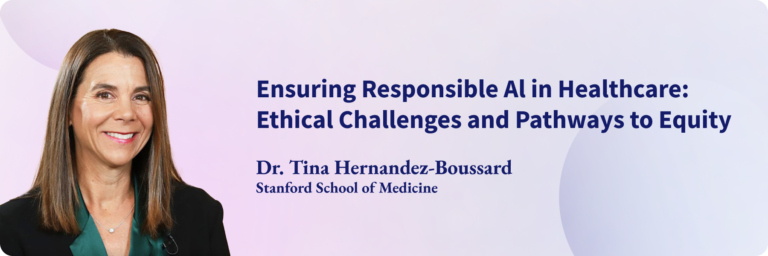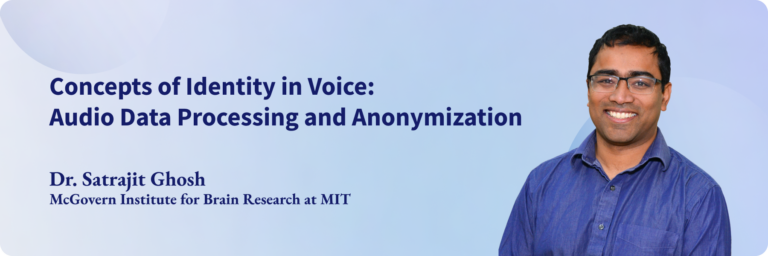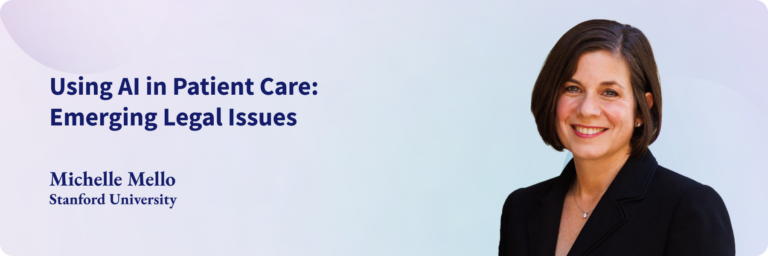Dr. Hernandez-Boussard – Ensuring Responsible AI in Healthcare: Ethical Challenges and Pathways to Equity

Dr. Hernandez-Boussard, examined ethical challenges in healthcare AI, focusing on bias, accountability, transparency, and fairness.

Dr. Hernandez-Boussard, examined ethical challenges in healthcare AI, focusing on bias, accountability, transparency, and fairness.

Dr. Ghosh discussed voice as a personal biometric marker that conveys identity, emotion, and intent, while also posing privacy risks in audio-driven technologies.

To remove identifying information from something (such as computer data) so that the original source cannot be known; to make something anonymous.

Dr. Mello presented discussed potential malpractice liability risks arising from the use of AI tools in patient care, as well as potential liability for algorithmic discrimination under recent federal rulemaking.

Trustworthiness, a commonly recognized antecedent to trust, can be described as the perception of probabilities, or expectation, that a trusting relationship will result in gains and/or losses from engaging in an encounter that requires trust.

Trustworthiness, a commonly recognized antecedent to trust, can be described as the perception of probabilities, or expectation, that a trusting relationship will result in gains and/or losses from engaging in an encounter that requires trust.

Trustworthiness, a commonly recognized antecedent to trust, can be described as the perception of probabilities, or expectation, that a trusting relationship will result in gains and/or losses from engaging in an encounter that requires trust.

Dr. Leo Celi presented on the societal implications of AI, addressing concerns such as its role in accelerating climate change, reinforcing systemic inequities through data bias, and fostering monopolistic dependencies on large firms.

AIM-AHEAD Bridge2AI for Clinical Care AIM-AHEAD Traineeship in Advanced Data Analysis using the Bridge2AI AI/ML for Clinical Care NetworkThe AIM-AHEAD Bridge2AI for Clinical Care Training Program is intended to increase researcher diversity in AI/ML by leveraging Bridge2AI AI/ML for Clinical…

Congratulations to Dr. Christopher G Chute, MD, DrPH, on his election to the National Academy of Medicine. Dr. Chute is joined by 99 other new members of the Academy, recognized for their professional achievement and commitment to service in the fields of…